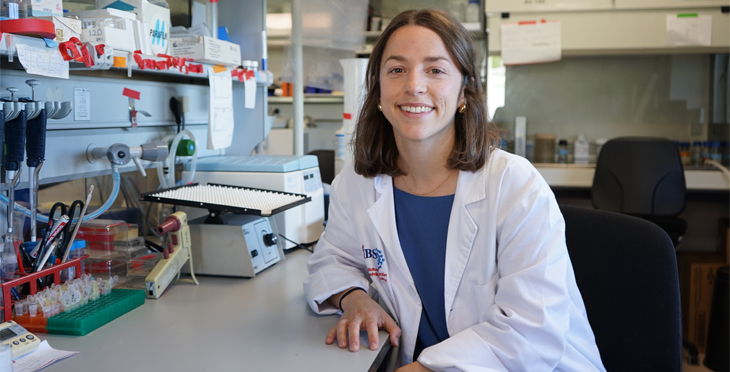Tumorigenic potential of the MEK5/ERK5 pathway.

Sofía Matilla Vicente-Almazán
Centro de Investigación del Cáncer (CSIC-Universidad de Salamanca)
The MEK5/ERK5 signaling pathway plays an important role in the pathophysiology of cancer, representing a promising therapeutic target. We and others have described the activation of this pathway in several types of tumors. However, whether its exclusive activation causes tumorigenesis was unknown until we were able to generate a mouse model expressing a constitutively active form of the MEK5 kinase (MEK5DD). These mice developed lung tumors and sarcomas. Data related to the relevance of the ERK5 signaling pathway in sarcoma will be presented at the seminar.
Considering that the tumors that form in MEK5DD transgenic mice originate from different cellular sources, their common sensitivity to oncogenic transformation upon activation of the MEK5/ERK5 pathway indicates that they may share some molecular features that favor the pro-oncogenic role of the MEK5/ERK5 pathway. In addition, previous studies by our group have shown that activation of this pathway controls tumour progression in ovarian cancer and breast cancer. Thus, a current objective of our work is to define a gene signature that may biomark tumours sensitive to MEK5/ERK5 inhibition with the aim of selecting patients who may benefit from targeted therapies against MEK5 or ERK5 kinases. To that end, we have generated cell models lacking either MEK5 or ERK5 expression using the inducible CRISPR/Cas9 system. We are performing genomic and proteomic analyses to define genes with a clear dependence on the pathway activity.

